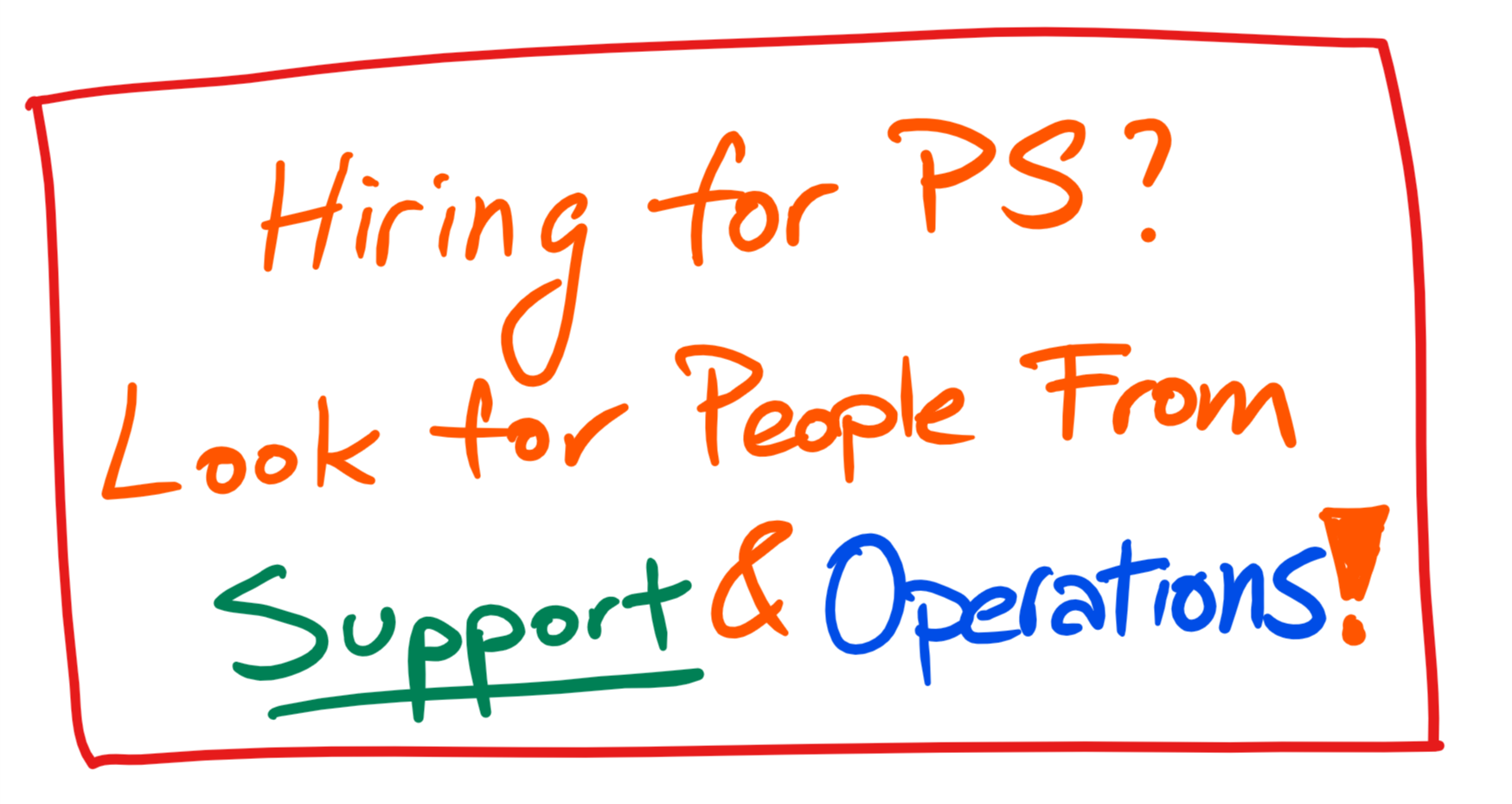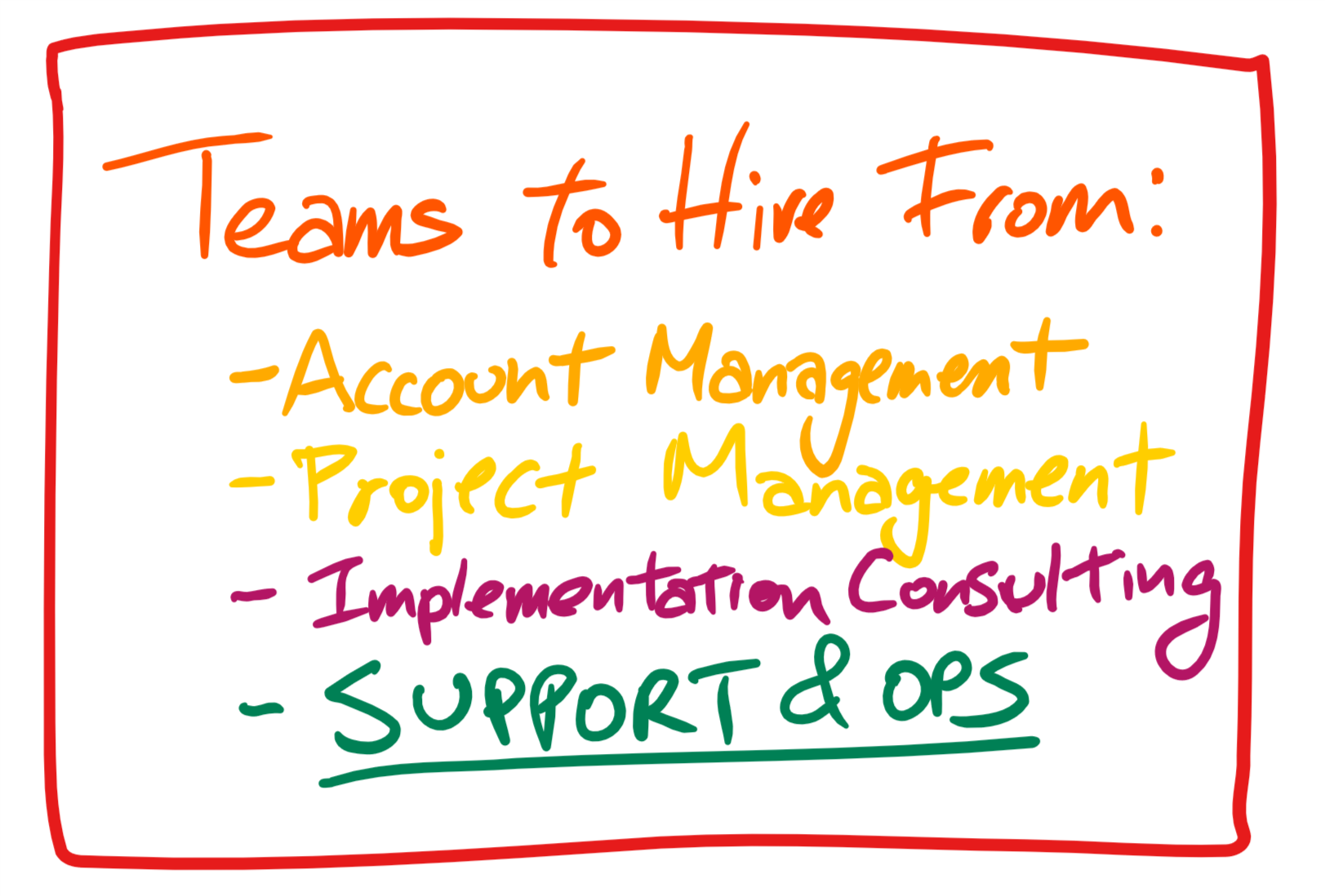I've had the responsibility being on the hiring side of professional services teams. Each time I go through the process I have two thoughts:
- Finding people with a similar diverse skillset like me is quite difficult. I grew my skillset organically, picking up skills along the way. For the most part, the skills found me out of organizational necessity, and not necessarily by choice.
- Candidates are grouped in a handful of categories: swiss army knives, project managers, technical account folks, and support/operational people.
Here's what I learned through hiring for my PS teams: those who are most successful usually do not have the skillset I'm looking for out of the starting gate, but instead are the best fit for the team in terms of eagerness to grow and learn. Specifically, the candidates who turned out to be amazing colleagues and superstar teammates come from operations and support.
Why is that?
I believe that the raison d'etre for any professional services team is to build great partnerships with our clients and to be their greatest trusted advisor. It's not about maximizing sales potential or implementing every product under the sun: it's about listening to our clients, diagnosing their pain, and helping them solve that pain. My colleagues who came from operations and support are incredibly prepared to excel in all of that because that's what they do day-in and day-out: they listen empathetically, diagnose pain, and provide solutions that solve problems.
My belief is usually met with skepticism and doubt. The usual arguments are:
- Support people are too junior for a senior role like professional services - This is the one thing I hear the most often. Some people see professional services, or consultants in general, as a senior level that that requires years and years of experience just to join the team. But if we only fill a team with similarly experience people, we lose the opportunity to learn what we don't know (otherwise known as the curse of knowledge). There's so much we can learn from those who have less experience than us because they ask questions that we wouldn't ask, and in turn, we are afforded new perspectives that we otherwise wouldn't be exposed to.
- Support people are too myopic to solve the immediate problem - I'd like to think my colleagues in support are great at troubleshooting, backtracking, and solving problems. Those skills are directly applicable to any professional services task, with the most important one being diagnosing and solving client pain.
- Support people don't have account management experience - This is by far the easiest myth to dispell. My colleagues are the first line of communication with often angry and defensive clients and are tasked to diffuse situations that they find themselves in through no fault of their own. They see so much more human emotion in client interactions than we would usually see in a professional services engagement because support requests are often highly emotional affairs, and that builds skills that turn clients into partners.
- They don't have X skill that's required right now - DId we all have that skill when we joined a professional services team? No? Did we learn it on the job? Yes? Then why would we handcuff ourselves to this backwards opinion and disqualify great candidates that will help grow the team in the long term? If we find a candidate who is eager to learn (and have the ability to scale quickly), then this excuse easily becomes moot.
If you're in a similar position of great responsibility to hire and build a professional services team, do yourself a favour and look to those in operations and support to augment your team. Each time I have built a PS team I have found great success with hiring from those teams. They bring a level of enthusiasm, curiosity, grit, and determination to a healthy PS team dynamic. Truth be told, I've learned more from them about being a more empathetic listener and a better leader than they possibly learned from me.
You'd be doing a disservice if you miss out on an opportunity like this.


